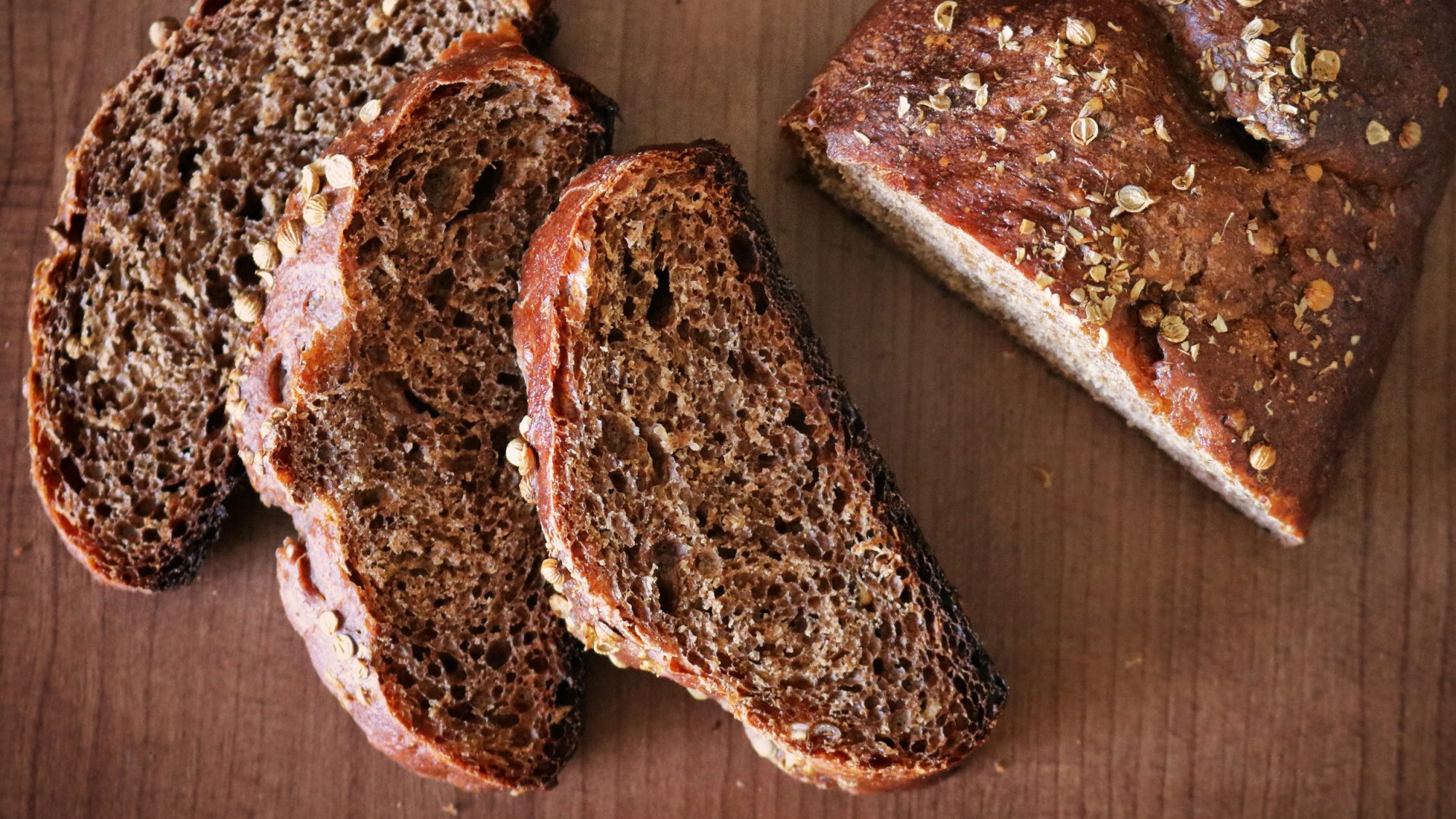Introduction:
Bread is a staple food consumed by people around the world, and there are various types available, including white, whole wheat, and rye bread. Rye bread, made from rye flour, has gained popularity in recent years due to its unique flavor and potential health benefits. In this comprehensive guide, we will explore the nutritional profile of rye bread, its potential health benefits, and considerations to keep in mind when incorporating it into your diet.
Nutritional Profile of Rye Bread:
Rye bread is a good source of essential nutrients. It contains a variety of vitamins and minerals, including vitamin E, B vitamins (such as thiamin, riboflavin, and niacin), iron, magnesium, and zinc. Additionally, rye bread is rich in dietary fiber, with one slice typically providing more fiber than white bread. The fiber in rye bread can contribute to a healthy digestive system and help regulate blood sugar levels.
Health Benefits of Rye Bread:
a. Weight Management: Rye bread is often recommended for individuals aiming to manage their weight. The high fiber content in rye bread can promote feelings of fullness and reduce hunger, potentially leading to lower calorie intake throughout the day.
b. Blood Sugar Control: Rye bread has a lower glycemic index (GI) compared to white bread. The glycemic index measures how quickly a food raises blood sugar levels. Foods with a lower GI value can help stabilize blood sugar levels, which is particularly beneficial for individuals with diabetes or those at risk of developing the condition.
c. Heart Health: Rye bread contains a type of soluble fiber called beta-glucan, which has been associated with several heart health benefits. Regular consumption of beta-glucan may help lower cholesterol levels, reduce the risk of cardiovascular diseases, and promote a healthy heart.
d. Digestive Health: The fiber content in rye bread can support a healthy digestive system by promoting regular bowel movements and preventing constipation. It also acts as a prebiotic, providing nourishment for beneficial gut bacteria, which contribute to overall gut health.
Considerations and Varieties:
a. Whole Grain vs. Refined: When choosing rye bread, opt for the whole grain variety whenever possible. Whole grain rye bread contains all parts of the grain, including the bran, germ, and endosperm, which retain more nutrients and fiber compared to refined rye bread.
b. Sodium Content: Some commercially produced rye bread may have a higher sodium content, which can be a concern for individuals monitoring their sodium intake. Reading food labels and selecting low-sodium options can help mitigate this issue.
c. Gluten Sensitivity: While rye bread does contain gluten, individuals with mild gluten sensitivities or those who are not diagnosed with celiac disease may find that they can tolerate rye bread better than wheat bread. However, individuals with celiac disease or a severe gluten intolerance should avoid rye bread or opt for certified gluten-free varieties.
d. Organic and Sprouted Varieties: Choosing organic rye bread can minimize exposure to pesticides and chemical fertilizers. Additionally, sprouted rye bread, made from sprouted whole rye grains, may have increased nutrient availability and digestibility.
Incorporating Rye Bread into Your Diet:
a. Substitution: Rye bread can be used as a healthier alternative to white bread in various recipes, such as sandwiches, toasts, and even homemade croutons. Experimenting with different rye bread varieties and incorporating them into your favorite dishes can add variety and nutritional value to your diet.
b. Toppings and Pairings: Enhance the taste and nutritional profile of rye bread by topping it with nutrient-rich ingredients like avocado, smoked salmon, or hummus. Rye bread also pairs well with soups, stews, and salads.
c. Portion Control: While rye bread can be a nutritious choice, it is important to practice portion control. Be mindful of the number of slices consumed, as excessive intake may contribute to an overall higher calorie intake.
Conclusion:
Rye bread can be a healthy and nutritious addition to your diet. Its high fiber content, potential for weight management, blood sugar control, and heart health benefits make it an attractive choice. However, individual dietary needs and considerations should be taken into account. By selecting whole grain varieties, being mindful of sodium content, and considering gluten sensitivities, you can make informed choices when incorporating rye bread into your meals. Enjoy the variety of flavors and textures that rye bread offers while reaping its potential health benefits.
- THC Products By Just Delta-Embark on a THC Adventure: Exploring Just Delta’s Thrilling Product Lineup! - February 20, 2024
- White Walrus Marijuana Strain - September 15, 2023
- Is Rye Bread Healthy? - July 11, 2023

